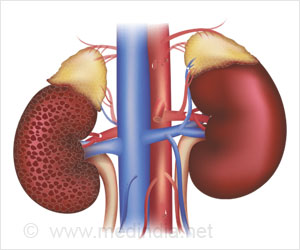Autoimmune-mediated bone marrow injury is an early or predisposing event in the pathogenesis of benzene-induced persistent hematopoietic disease.
Autoimmune-mediated bone marrow injury is an early or predisposing event in the pathogenesis of benzene-induced persistent hematopoietic disease, according to recent research which appears online on September 23 in the journal Leukemia Research.
Myelodysplastic syndrome is a heterogeneous group of diseases characterized by ineffective hematopoiesis, dysplasia in one or more hematopoietic lineages, clonal evolution and a tendency to progress on to bone marrow failure or acute myelogenous leukemia.Hematotoxicity following chronic benzene exposure has been recognized for over a century, although the mechanism remains unknown.
This paper describes a novel form of bone marrow dysplasia in 23 workers exposed to high concentrations of benzene.
Distinguishing features of benzene-induced dysplasia include: marked dyserythropoiesis, eosinophilic dysplasia and abnormal cytoplasmic granulation of neutrophilic precursors.
Hematophagocytosis, stromal degeneration and bone marrow hypoplasia were also seen. Severe bone marrow dysplasia was found to be frequently accompanied by clonal T cell expansion and alterations in T lymphocyte subsets. No clonal cytogenetic abnormalities were observed. .
The authors conclude that these observations indicate that previous chronic exposure to benzene is associated with the development of BM dysplasia, and suggest that a reactive inflammatory process may be involved in the suppression of hematopoiesis in persistent BM failure following chronic benzene exposure. These findings further suggest the possibility that markers of immune activation or inflammation may prove useful in monitoring the development or progression of benzene-induced dysplastic disease.






